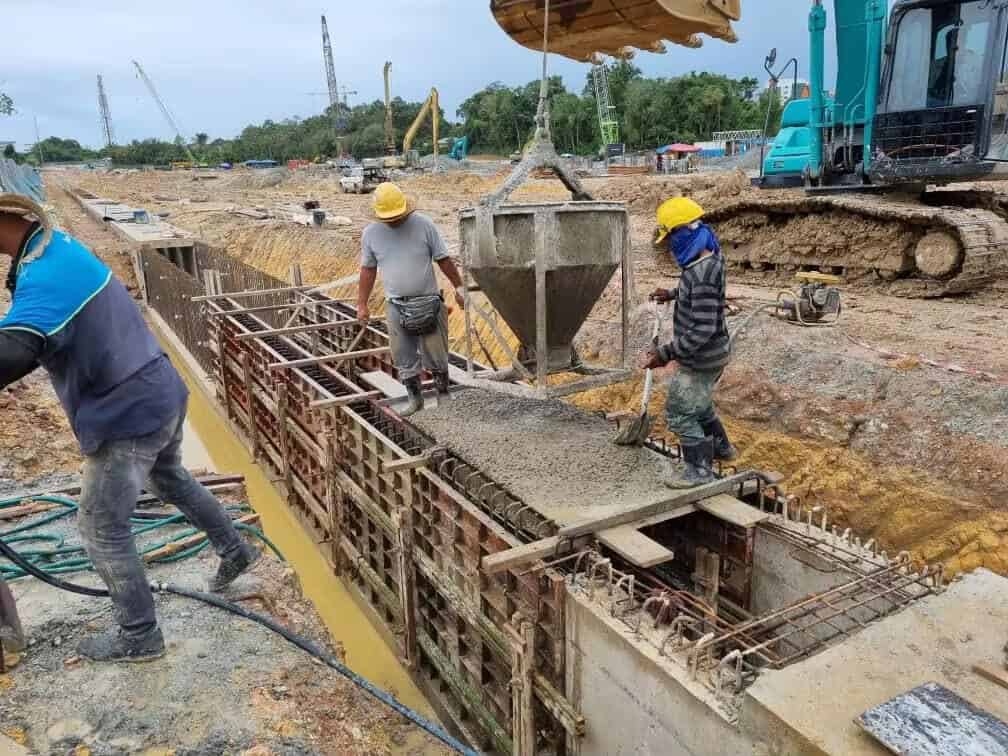What Are the Various Systems of the Formwork?

Struggling to choose the right formwork? Modern systems offer efficiency, durability, and cost-effectiveness, making construction projects more streamlined and safer with advanced formwork options tailored to specific needs.
The various formwork systems include traditional timber, engineered wood, aluminium, steel, plastic, and modular systems. Each system offers unique advantages for specific construction needs, balancing durability, cost, and reusability.
Below, we explore the types of formwork systems, their applications, benefits, and the factors to consider when selecting the right one for your project.
What Is Formwork, and Why Is It Essential in Construction?
Wondering about the role of formwork? It’s essential for shaping concrete structures, ensuring stability during curing, and achieving high-quality finishes for various construction projects.
Formwork is a temporary mold used in construction to hold wet concrete until it hardens. It ensures structural stability, precision, and smooth finishes for walls, slabs, beams, and columns.
Formwork is a crucial component in modern construction, serving as a temporary mold to shape and support concrete until it gains sufficient strength. Its primary purposes include:
- Shaping Concrete: Ensures the desired dimensions and design are achieved.
- Supporting Wet Concrete: Prevents deformation during curing.
- Safety: Stabilizes the structure to allow safe construction.
- Quality Finish: Provides smooth and precise surfaces, reducing post-construction work.
Modern formwork systems improve efficiency, reduce material waste, and enhance the quality of concrete structures.
What Are the Types of Formwork Systems?
Confused about the options? Formwork systems range from traditional timber to advanced modular designs, each tailored to meet specific project requirements for efficiency and cost-effectiveness.
Formwork systems include timber, plywood, steel, aluminium, plastic, and modular systems. Each type is designed for specific construction needs, offering durability, reusability, and cost-effectiveness.
The various formwork systems include:
- Traditional Timber Formwork: Simple and cost-effective for small projects but has limited reusability.
- Plywood Formwork: Provides smooth finishes and moderate reusability.
- Steel Formwork: Durable and reusable, ideal for large-scale projects.
- Aluminium Formwork: Lightweight and corrosion-resistant, with high reusability.
- Plastic Formwork: Lightweight, easy to clean, and suitable for repetitive use.
- Modular Formwork Systems: Prefabricated panels offering high adaptability and efficiency.
Each system has distinct advantages, making it suitable for specific construction scenarios.
What Is the Best Type of Formwork System?
Seeking the best option? The best formwork system depends on project size, budget, and durability needs, with steel and modular systems excelling in reusability and precision.
Steel and modular formwork systems are widely considered the best due to their durability, reusability, and adaptability for complex projects. Their initial cost is offset by long-term savings.
The best formwork system depends on your project requirements:
- Steel Formwork: Preferred for durability, precision, and high reusability in large projects.
- Modular Formwork: Ideal for complex or repetitive designs with quick assembly and dismantling.
- Aluminium Formwork: Lightweight and corrosion-resistant, suitable for medium-scale projects.
- Plastic Formwork: Best for smaller projects needing a cost-effective and reusable solution.
Consider the project scope, budget, and required efficiency to select the best system.
What Is System Column Formwork?
Curious about system column formwork? This efficient method simplifies column construction, offering precision, quick assembly, and reusable materials for high-quality results in modern building projects.
System column formwork uses prefabricated components for quick and efficient construction of columns. It ensures high precision, reusability, and reduced labor costs, making it ideal for repetitive projects.
System column formwork is a specialized type of modular formwork designed for constructing columns. Key features include:
- Prefabricated Components: Simplify assembly and dismantling.
- Reusability: Durable materials like steel or aluminium allow multiple uses.
- Precision: Ensures uniform dimensions and smooth finishes.
- Efficiency: Reduces labor time and costs compared to traditional methods.
This system is particularly beneficial for projects requiring multiple columns with consistent specifications.
What Are the Benefits of System Formwork?
Want to boost efficiency? System formwork enhances speed, durability, and reusability, reducing overall costs and improving construction quality for modern projects.
System formwork improves efficiency, reduces labor costs, and provides durable, reusable components for consistent results. It’s a cost-effective solution for repetitive or large-scale construction projects.
System formwork offers several benefits:
- Speed: Prefabricated parts enable faster assembly and dismantling.
- Reusability: Durable materials allow for multiple uses, reducing costs.
- Precision: Consistent dimensions improve structural quality.
- Eco-Friendly: Minimizes waste compared to traditional formwork.
- Cost-Effective: Reduces labor and material expenses over time.
These advantages make system formwork an essential tool for efficient and sustainable construction.
What Is the Difference Between Conventional Formwork and Industrial Formwork?
Debating between conventional and industrial formwork? Industrial systems provide higher efficiency, durability, and adaptability, while conventional methods are more suited to smaller, simpler projects.
Conventional formwork is labor-intensive and less reusable, ideal for smaller projects. Industrial formwork uses advanced systems for quicker assembly, better durability, and cost savings in large-scale construction.
The key differences between conventional and industrial formwork include:
- Materials: Conventional formwork often uses timber or plywood, while industrial formwork incorporates steel, aluminium, or modular systems.
- Reusability: Industrial systems are designed for multiple uses, reducing long-term costs.
- Efficiency: Industrial formwork offers faster assembly and dismantling, saving time.
- Precision: Prefabricated components in industrial systems ensure higher accuracy and consistency.
Industrial formwork is better suited for repetitive or large-scale projects requiring efficiency and durability.
Conclusion
Formwork systems include traditional timber, steel, aluminium, plastic, and modular options, each suited to specific project needs. Evaluating factors like cost, durability, and reusability ensures the right choice for efficient and safe construction.
